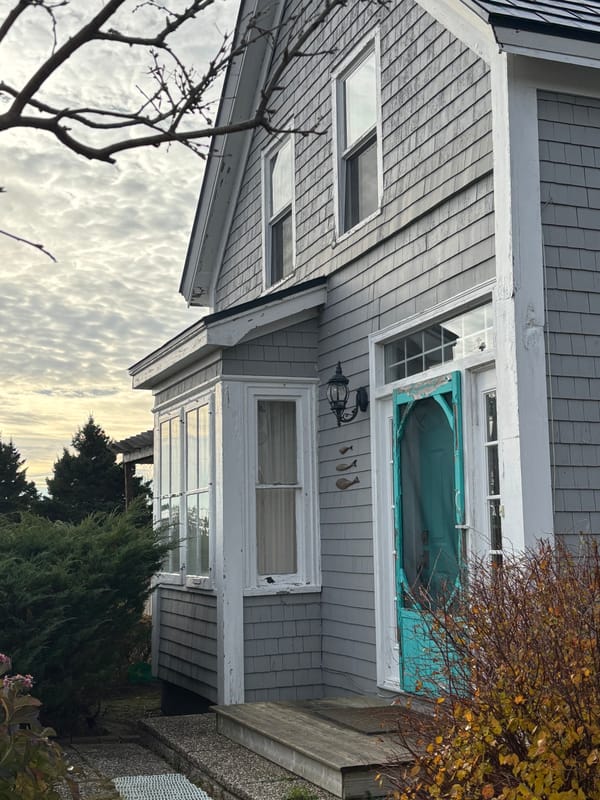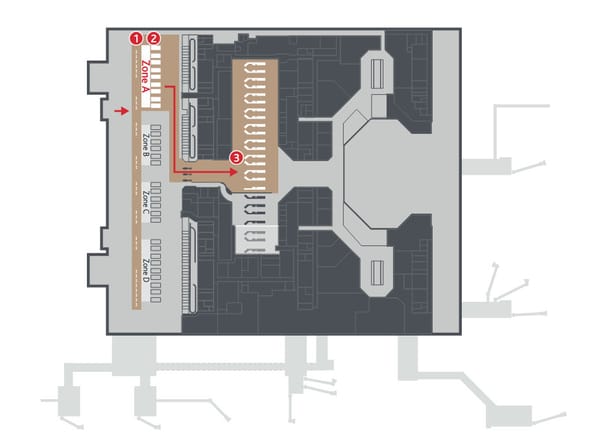More of the Nuts and Bolts of Britain.

First off, let's be honest. This by any measure a beautiful country. The fields and streams and skies look just like they do in the paintings and movies. And, for reasons I haven't quite figured out, there are fruit, berry, and nut trees everywhere we walk.
England is though another place where the divide between City and Rural is significant. As is the case in many places in North America, life outside of Cambridge really does mean that you need a car. As good as the transit and trains are in (southern?) England, if you commute, you often can't entirely rely on them.
And, in two towns thus far, we've learned that for day to day shopping - groceries, office supplies etc - you really do need to drive to the closest stores. The little local shops have largely shut down. I really miss Alençon, in France, for the ease of stepping out the door and getting bread and fresh ingredients within a ten-minute walk.
Cambridge in many ways reminds me of Alençon. It's old, and the streets are narrow and twisty. I remember that it took me several months to really know my way around Alençon, and can see that Cambridge downtown will be the same.
I don't like Google Maps, I like landmarks, and street names, and turning left or right without stopping to think about it. In a town like Cambridge (population around 140,000, or about three times the size of Alençon) that will take a bit longer. Right now, the best that I can do is know which side of the street I go to for the city center bus when I get off of the train.
But I like the exploring.
We've discovered that English tap water is hard, very hard. Cleaning lime scale out of dishwashers and kettles is a routine part of life, and after the soft rainwater of Vancouver every kind of cleaning is very different.
And I now know that it's not really lime scale, it's from calcium and magnesium, the result of chalk under the British soil.

The other thing that I'm liking about Britain is that it's still a literate country. By that I mean that (as in France) even the smallest corner store will carry eight or ten different newspapers, with different publishers, and different politics.
Cambridge might be exceptional, but like London there are bookstores, both new and used, and they seem to be thriving. And of course you have the BBC, which, despite years of attacks, still stands as one of the better news operations on the planet.
Part of this likely stems from the sense of history, or more specifically a sense of a history that goes back at least a thousand years. Despite the dreck spread by people like Nigel Farage, your average Englishman understands that the country has a long history, and that people from across the globe have come here over the centuries to make it home. Heck, curry shops are more common than fish and chips.
The other (harder to define) thing that I'm loving - especially in London - is that it's a country that has style. Even though the norm isn't at all what you would think of - I've yet to see an actual Jacob Rees-Mogg tailsuit and top hat - people do give some thought to clothing in a way that Canadians don't.
The best example of this was a couple of weeks ago, on a long tube journey across London. The train was crowded, and I had the opportunity to watch as a very confident young black woman did a massive make-up application - multiple different kinds of glosses, blushes, and eye treatments - using only a tiny hand mirror for reference. The transformation was glorious, but even better was the seven or eight-year-old girl sitting with her mother on the other side of the aisle, watching intently, taking mental notes, and being offered sage advice from time to time.
That confidence, and that willingness to pass that level of self-assuredness onto a younger generation, really typifies a lot of what I've seen here. And it drives home for me the sense that Canadians have been taught to be defeatist, to default to saying "Oh well, what can you do?"
Right now Mark Carney is beginning to dismantle Canada Post; beginning by eliminating home delivery of mail. Where other countries have stopped that sort of action, and have even expanded the range of services offered by (for example) La Poste, Canadians seem prepared to just let it happen.
And of course, at the same time that Canada loses an essential service, the country will also lose thousands of secure, unionized jobs - further driving down average wages, and further eliminating job security.
Canada doesn't need to lose mail service, it's a choice being made by the government. You can be sure that when DHL and Amazon and FedEx take over delivery, the prices will go up, and the service will go down.
Or, as I've taken to saying this year:
This is where I always ask: Tell me about one example of a government service being privatized, and offering the same or better service for less cost. Just one example.
Response: <crickets>




